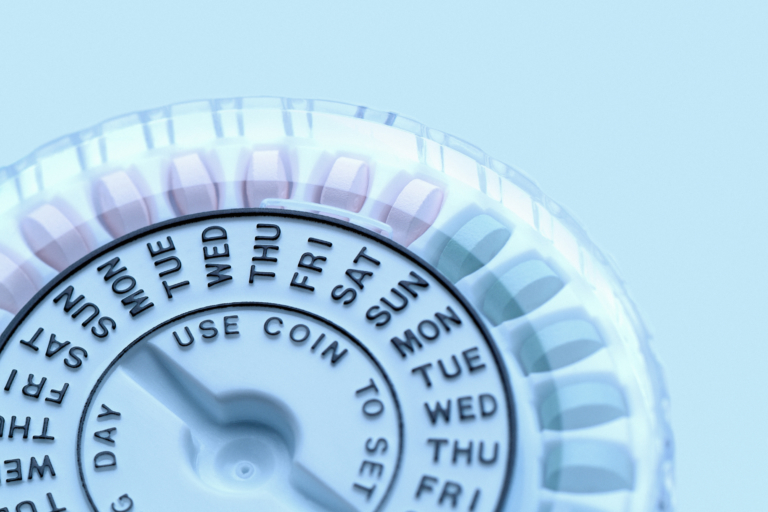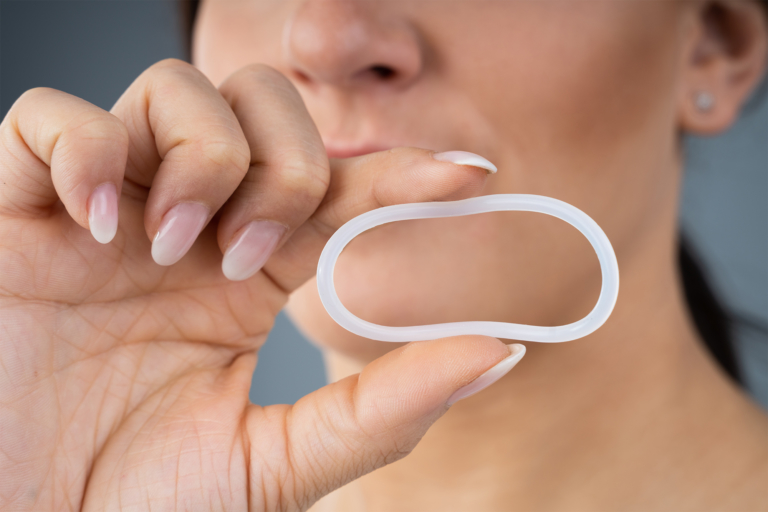When it gets worse before it gets better
Kristina, who took Depo Provera injections for about a year, stopped because of repeated and severe urinary tract infections. Once her final Depo injection wore off, her troubles weren’t over. She reported going through “terrible withdrawals,” with migraines, constipation, diarrhea, weight gain, hemorrhoids, back, side, stomach issues, and severe breast pain. Six months after her last injection, when her period finally returned, it lasted 14 days. “It was awful,” she said.
Lucy’s experience: running on empty
Two months after discontinuing her Depo shots, Lucy shared her story on IUD alert.com on Oct. 27, 2021. She reported feeling “really unwell,” with major fatigue, unexplained anxiety and panic attacks, tremors, digestive problems, dizziness, vision changes, body aches and pains, low blood sugar, hot flashes, and “feeling off balance.”
Concerned about the state of her hormones, Lucy ordered a DUTCH (Dried Urine Test For Comprehensive Hormones), a thorough assessment of sex and adrenal hormones and related measures. The test revealed that while Lucy’s “female” hormones, estrogen and progesterone, were depleted, her androgens were extremely high.
Androgens, or androgenic hormones, sometimes referred to as “masculinizing-hormones,” include testosterone, androstenedione, dihydrotestosterone (DHT), dehydroepiandrosterone (DHEA), and DHEA sulfate (DHEA-S). These hormones are normal and healthy for women—in the right amounts.
When these hormones become too high, though, especially in relative proportion to hormones such as estrogen, women may experience symptoms: from irregular periods to acne, or growth of unwanted facial and body hair and loss of hair on the head.
“I’ve been running on empty while I wait for my body to start producing its natural hormones again,” Lucy said.
Countless women have complained about the difficulties resulting from the hormonal upheavals created when transitioning from Depo. Back in 2012, Laura Wershler, a member of the Society for Menstrual Cycle Research and editor-in-chief of its blog, wrote Coming off Depo-Provera can be a woman’s worst nightmare. Medical studies on the problem are lacking, though.
In 2018, New Zealand’s Centre for Adverse Reactions Monitoring (CARM) was alerted to complaints from women about “withdrawal symptoms” following discontinuation of Depo Provera, and a committee was formed to investigate Depo withdrawal as a “safety concern.” Without formal studies of the problem, the committee relied on women’s statements about it on publicly available internet forums and blogs.
The resulting report explained that hormone balance is disrupted, producing symptoms, both when beginning and ending the Depo injection. Among the main complaints of Depo withdrawal were “feelings of having a viral infection with fatigue, eye pain, visual disturbance, itching, restlessness, agitation, shaking, nausea and shortness of breath….weight gain, hot flashes, painful breasts, sleeping problems, headaches, flu symptoms, and nausea.”
Hormone suppression and rebound
Steroidal contraceptives such as Depo Provera generally inhibit the hormone levels that allow pregnancy to occur. They also disrupt the normal coordination of the hypothalamus and the pituitary glands with the ovaries, according to Dr. Jerilynn C. Prior. One of the committee members on the New Zealand study, Dr. Prior is a Canadian endocrinologist and medical doctor specializing in menstrual cycles and the effects of hormones on women’s health. She is a board member of the Society for Menstrual Cycle Research, a professor of endocrinology at the University of British Columbia, and scientific director of the Centre for Menstrual Cycle and Ovulation Research.
Because the body is naturally programmed to maintain or restore a healthy hormonal balance and fertility, once the disruption of the natural brain signals and responses is removed, hormone levels can surge, bounding out the gate like a racehorse.
After discontinuing the shot, over-stimulation of estrogen, which Dr. Prior notes is “the easiest hormone to get the ovary to produce,” can cause nausea, sore breasts, fluid retention and bloating, mood swings, and abnormally heavy or extended vaginal bleeding.
Chain reaction on progesterone
While estrogen may be abnormally high as hormones strive to restore rebalance, a woman’s levels of progesterone may be abnormally low. Dr. Prior believes that this estrogen-progesterone imbalance leads to many of the distressing symptoms for women.
The Depo shot suppresses ovulation, which is at the root of the issue. It can take many months to re-establish normal ovulation after Depo is discontinued. The excess estrogen produced as the body is working to regain balance also contributes to continued suppression of ovulation. In a healthy menstrual cycle, the correct estrogen levels lead to ovulation, which in turn triggers the production of progesterone at the right time, and so the cycle continues through menstruation to continue the monthly reproductive hormonal pattern. Progesterone is needed to counterbalance estrogen, otherwise symptoms may result.
Testosterone Response
When testosterone rebounds following its suppression by steroidal contraception, its elevated levels can cause acne or hair loss. Dr. Jolene Brighten is a Functional Medicine Naturopathic Physician specializing in treating hormone disorders, including hormonal birth control-related conditions. She is a recognized expert in Post-Birth Control Syndrome and the long-term side effects of hormonal contraceptives. Dr. Brighten writes that she’s seen many cases of women who never had acne before experiencing severe acne when discontinuing steroid-based birth control.
Hormonal birth control also depletes nutrients, disrupts the gut flora, and can overwhelm the liver in its work of detoxing, according to Dr. Brighten. The host of withdrawal symptoms from steroidal contraceptives can be a strong incentive for women to keep using or return to using the drugs. Women may even believe that the body needs contraceptives for balance. But with patience and support, the body can heal itself and restore its natural equilibrium.
Birth control is literally a “doctor-prescribed hormonal imbalance,” so coming off steroidal hormones is for the body a “delicate rebalancing act” that can result in a variety of symptoms, writes Julia Hogan-Werner, LCPC, in her article “Don’t Expect a Quick Fix When You Quit Birth Control (And Why It’s Still Worth the Effort). Numerous resources are available to help women get through the difficulties and to support the body’s efforts to find balance.
Natural Alternatives to Depo and other steroidsHealthy alternatives to steroid-based “hormonal” contraceptives are now available to allow women to manage their fertility through education. Based on the interpretation and tracking of the biomarkers (such as cervical mucus, temperature shifts, hormone levels detectable in urine) of the fertile or infertile phases of the natural menstrual cycle, these methods are known as fertility awareness or natural family planning. These methods offer safe and effective means to either avoid or help achieve pregnancy; furthermore, they provide the health benefits of monitoring and supporting the reproductive system while allowing women to experience the significant health advantages of a naturally functioning fertility cycle.




